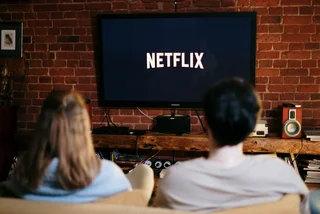Updated with film industry's response and further comment from White House.
U.S. President Donald Trump has announced a 100 percent tariff on foreign-produced films, raising concerns for Czechia’s thriving film industry, which has become a key location for international productions.
Trump stated in a social media post that the U.S. film industry, particularly Hollywood, is being undermined by foreign countries.
“The American film industry is DYING a very fast death,” Trump wrote. He went on to criticize other nations for offering incentives that encourage U.S. filmmakers to shoot abroad, calling it a national security threat.
His announcement includes the imposition of a 100 percent tariff on films made outside the U.S. and imported for distribution.
Donald Trump claims he is placing a 100% tariff on all films produced outside of America that are brought into the country.
— DiscussingFilm (@DiscussingFilm) May 4, 2025
“Any and all movies coming into our country that are produced in Foreign Lands. WE WANT MOVIES MADE IN AMERICA, AGAIN!†pic.twitter.com/EsQ9Pe5T2T
Speaking to the Hollywood Reporter, top entertainment execs said this would devastate TV, not just movies.
"There are a number of expensive tentpoles due out in the coming months that were filmed overseas. Would they be grandfathered in via a grace period or hit with a tariff? And what would the tariff even look like? This was all unclear," the publication wrote.
The Hollywood Reporter specifically mentioned Lionsgate’s Czechia-shot John Wick spinoff Ballerina (with a released date of June 6), as just one of many films produced abroad.
The White House later told the publication, “No final decisions on foreign film tariffs have been made,” Still, the administration insists it is exploring options to “safeguard our national and economic security while Making Hollywood Great Again.”
Czech film industry responds
The Czech audiovisual industry is closely watching potential U.S. tariffs, with officials acknowledging the likely impact but downplaying fears of a major crisis.
Vratislav Šlajer, chairman of the Association of Audiovisual Producers, told ČTK that American projects make up about half of all foreign film orders in the country. “We survived [the Hollywood strike],” he said, noting that Czech producers aren’t reliant on a single type of contract and also host many European and non-European productions.
Helena Bezděk Fraňková, head of the State Audiovisual Fund, warned of uncertainties surrounding the tariffs due to the global nature of the film industry, particularly involving major streaming platforms like Netflix, Amazon, and Disney.
The Ministry of Culture said will continue to monitor and assess the potential effects on the Czech sector.
Wider economic impacts uncertain
From January, the country implemented significant reforms to its film incentive program, aiming to bolster its position as a premier destination for international film and television productions.
Under the new Audiovisual Act, production incentives have increased from 20 percent to 25 percent of eligible local expenditures. Additionally, the maximum rebate per project has been tripled from CZK 150 million to CZK 450 million.
These changes are designed to attract larger-scale productions and enhance the country's competitiveness in the global film industry.
U.S. tariffs on foreign-made films could damage the Czech film sector but are unlikely to significantly affect the national economy, XTB chief economist Pavel Peterka told ČTK.
“If tariffs on films shot outside the U.S. are actually introduced, it is bad news for Czech filmmakers,” he said, warning of reduced access to the key American market and disrupted international cooperation.
While local governments and popular filming locations may lose revenue, Peterka noted that the film industry’s small share of GDP means overall economic impacts would be limited.












 Reading time: 2 minutes
Reading time: 2 minutes 





























